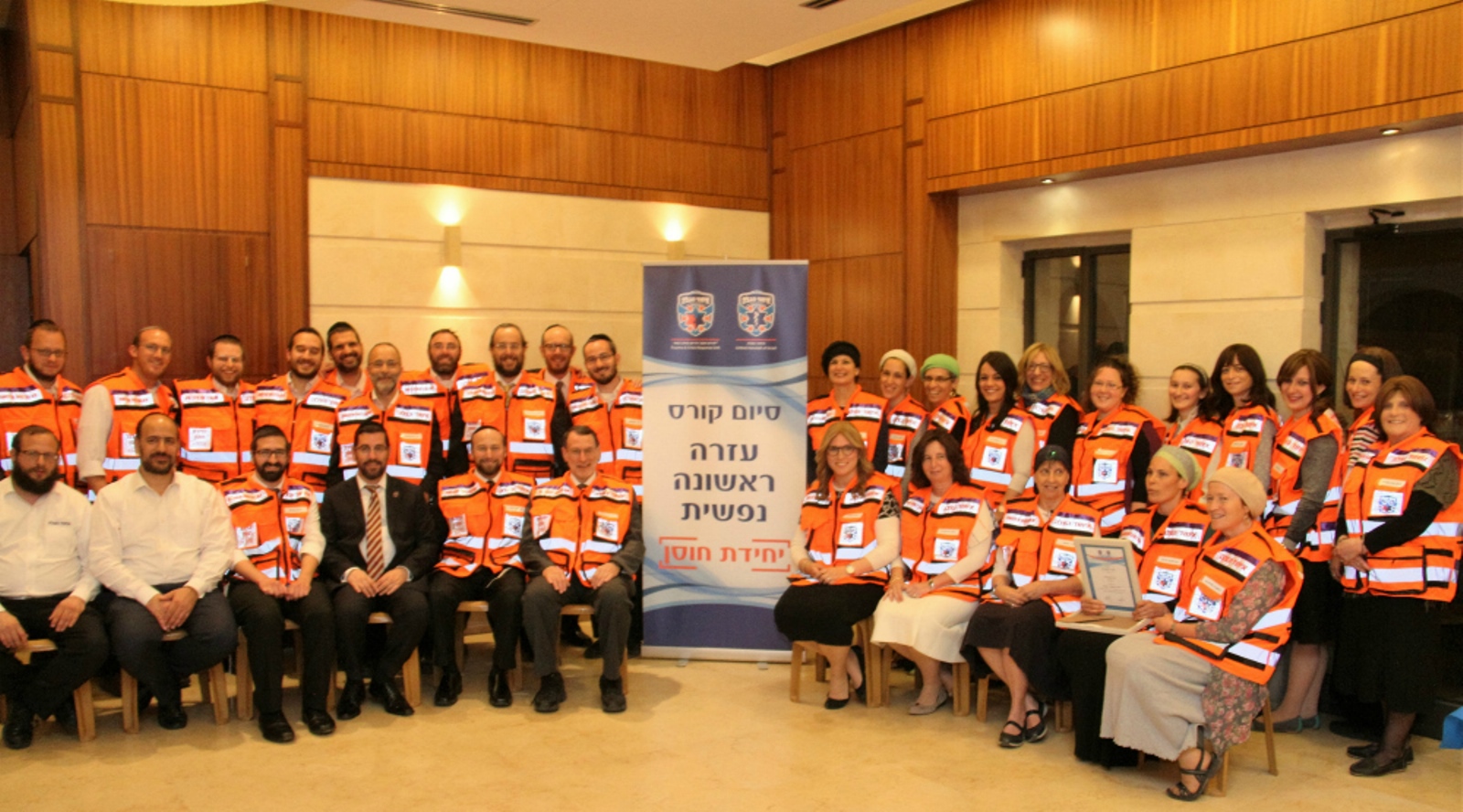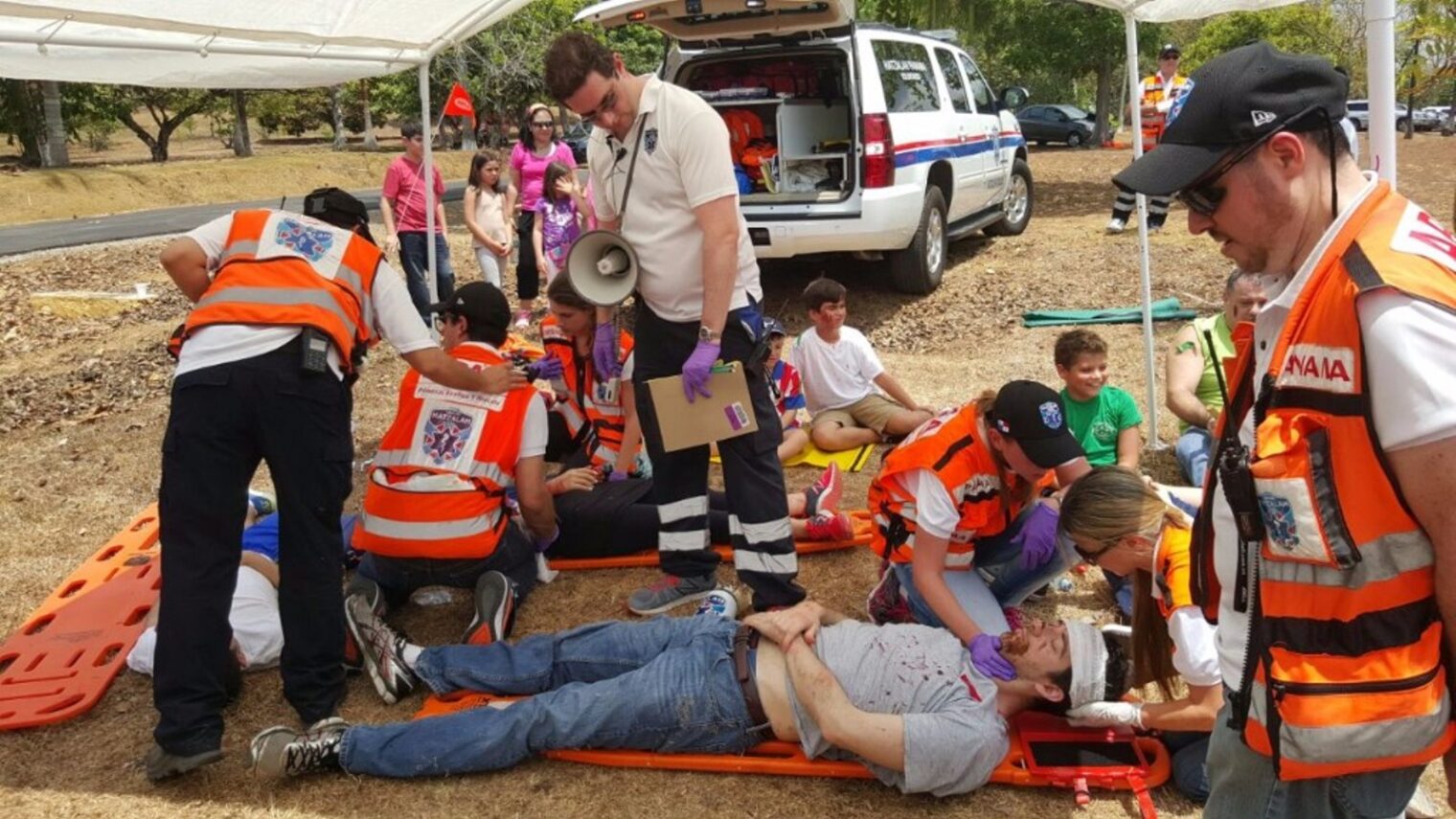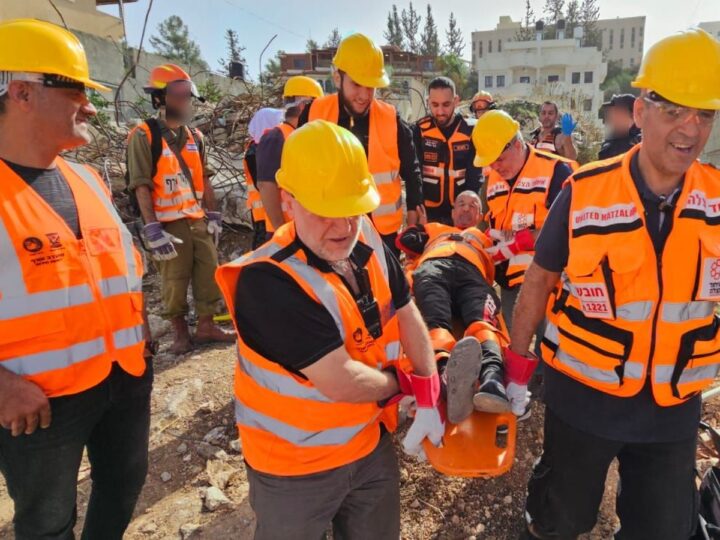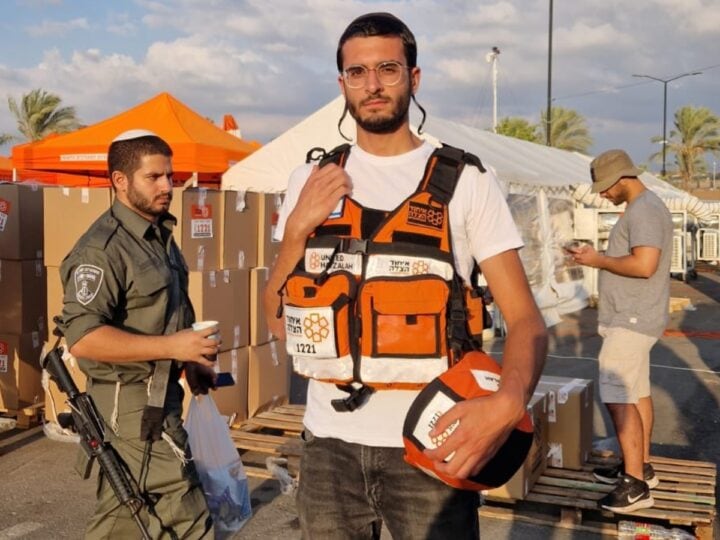Thirty Israeli EMTs, paramedics and doctors recently completed a training course qualifying them as psychotrauma volunteers and teachers for United Hatzalah, a private community-based network of voluntary first-responders across Israel.
The volunteers already started providing psychological first aid before the graduation ceremony on May 25, 2016. They responded to a bus bombing, three cases of sudden heart attack deaths and three incidents of crib death.
They will be on call whenever United Hatzalah is called to a scene of a terror attack, sudden death, child’s death, severe car accident, severe injuries, natural disaster, suicide and wartime trauma.
“The new psychotrauma unit is something that we have been working towards for a long time,” United Hatzalah Founder Eli Beer tells ISRAEL21c. He says the psychotrauma unit is the first in the world to be fully integrated within an emergency response organization.
“In order to assure that people are not only saved but have a normal life after the traumatic event that they experienced, we need to make sure that they receive not only medical treatment but psychological treatment.”
Beer relates that he and other medical responders “have often arrived at situations where people’s lives can be destroyed if they do not receive immediate psychological treatment. Our new psychotrauma unit is a project that can help provide care for all aspects of a traumatic event. The unit will enable United Hatzalah to help as many people as possible heal on a physical level as well as on an emotional and psychological level.”

Rickie Rabinowitz, one of the founders and instructors of the unit, said she considers psychotrauma as “another level of injury to treat beyond getting the wounded treated by the volunteer EMTs. The extra facet is coming to complement the work of the medic on the scene.”
The supervising psychiatrist of the unit, Dr. Gary Quinn, directs the EMDR Institute of Israel. EMDR (Eye Movement Desensitization and Reprocessing) is a form of psychotherapy aimed at forestalling development of trauma-related disorders caused by exposure to distressing, traumatizing or negative life events. Quinn specializes in crisis intervention and the treatment of anxiety, depressive disorders and post-traumatic stress disorder.
“Many first responders have been taught psychological first aid, which is an eight-stage method of helping people deal with a difficult event,” Quinn said. “This unit has received extensive training which primarily focuses on stage three of that process, which is the stabilization aspect. This step is the most difficult to deal with, and its difficulty is compounded when dealing with people who are in a highly activated state.”
Quinn added that to the best of his knowledge, “this is the first group of EMS responders who are being taught an extra level of stabilization. It is one of the first groups in the world that will be deployed with the specific purpose of providing psychological first aid, and we will need to do a lot of research as we go along.”
Job doesn’t end at the scene
The new unit is headed by Miriam Ballin, a marriage and family therapist as well as a volunteer medic for United Hatzalah.
“Stabilization can mean many different things,” Ballin explained. “We may need to stabilize the scene during an incident when the situation is so chaotic that no one can get their job done. Alternatively, we may be called upon to stabilize family members of the injured people who were hurt at the scene, or we may even be called upon to stabilize the patient in a case where the patient is so activated that the paramedics cannot treat the person.”
Jonathan Hoffman, one of the new graduates, said he is eager “to have a positive impact on people who are suffering from an immediate trauma. I want to be there for them, and in the moment provide them with care that can save their lives. That is what the psychotrauma unit is really all about.”
Ballin added that the job often does not end at the scene.
“Another job of ours is to ease the mourning process and help the person do the things that they will need to do in order to get through the chaotic period following a trauma — whether it is helping them make the first few phone calls for funeral arrangements or assisting them and providing support while empowering them enough so that they will be able to tell their children that a family member has passed away.
“The job is certainly not easy, but it is important for the person’s health and stability in the moment and hopefully in the future.”
For more information, click here.

















